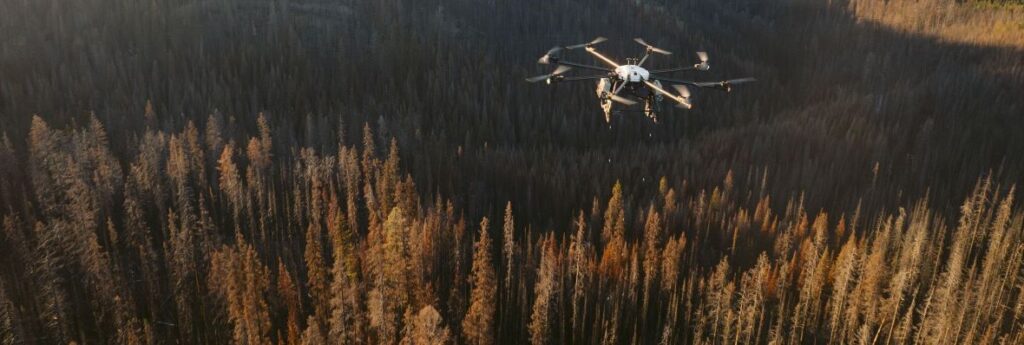Transat has pledged its support to Flash Forest, a Canadian aerial reforestation company whose mission is to rebuild healthy resilient forests at scale through a data-driven, biodiversity-centric, and community-led approach. By 2025, Transat says it will have helped finance the replanting of a forest devastated by wildfires, with over 70,000 trees or 48 hectares. This will allow for the sequestration of nearly 29,411 tonnes of CO2 over the course of the trees’ lifetime.
Noting that Canada’s once-forested areas are now in great need of replanting, in the interests of the local communities, the boreal forest ecosystem, and the fight against climate change at large, the travel company says it will plant 29 hectares of forest in the coming days with Flash Forest in Quebec’s Assinica National Park, renowned for its verdant boreal forest.
“We started discussing with Flash Forest last summer during the wildfire season. We were looking for a way to have a tangible long-lasting impact in our homeland through community investment, in line with our values and our approach to corporate responsibility,” said Julie Lamontagne, Chief People, Corporate Responsibility and Communications at Transat. “Almost a year later, it remains just as relevant and critical to restore the vital ecosystems that have been destroyed, further validating the need for organizations like Flash Forest. This initiative is only a small step in our journey toward a more environmentally responsible and sustainable future, and we hope to shed light on the important work Flash Forest is doing through this initiative,”
The project is being conducted in collaboration with the indigenous Cree Nation, whose local knowledge is deemed essential to the most effective seed collection and reforestation plan development.
Toronto-based Flash Forest’s innovative approach to reforestation leverages drone technology, enabling greater precision and access to post-wildfire areas deemed unsafe or inaccessible for humans, combined with proprietary seedpods designed to maximize the success rate of plantation.
Planting more than 10 times faster than humans, Flash Forest’s seedpod technology is also more sustainable than traditional tree planting methods, omitting the energy-intensive nursery phase. The company says it is on a journey to plant one billion trees by 2028, and not stop there.

